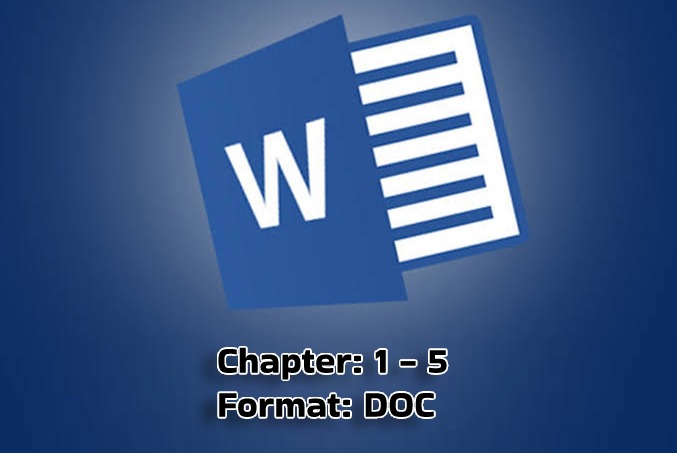Description
CHAPTER ONE
INTRODUCTION
BACKGROUND OF THE STUDY.
At independence, Nigeria joined the committee of nation with the hope
for a better tomorrow. We were able to feed ourselves and were of
course almost self-sufficient. Subsequently our hopes seemed
unattainable. We seem to be going deeper and deeper into the woods.
The consensus is that it has been bad for Nigeria. Due to the adverse
economic condition prevailing in the country many businesses have
closed, shops and even financial institutions are being declared
distressed at alarming rate. Businesses that are yet to be submerged or
that want to stay afloat employ all kind of strategies. Some increase
price, adopt promotional tools, engage in aggressive marketing etc.
whereas others goes for an odd combination of activities and even
undergo different kind of small business to survive.
Any business or individual that wants to survive must make the
right decision. The era of mile of thumb is gone; employing it is a sure
way to fail absurdly.
The price of any conceivable item from garri and bread to radio
and book not to mention petrol has been soaring in geometric proportions over the year. The economy is truly in distress.
These compounds and complicates intricate are the problem of the
organisation vis-à-vis effective planning and decision making processes.
Other factors such as stagflation, taxation, economic and political
problem are the major problem which affects information and decision
making. The future orientation is what most company and bank get from
making accounting decision .the computation and interpretation of
analytical ratios from financial statement enable bank to determine their
operation trends and provide a basis for management decision making.
Other users of financial analysis are used in making financial decision
and achieving the goal of sustainability determines compliance with
regulatory requirements. Financial analysis is an investment that has
positive return in the future on how decision will be made, how to
manage the finances to achieve the strategic goals of the institution
through decision making.
Many people think that accounting as a highly technical field which can
be understood only by professional accountants actually nearly everyone
practices accounting in one form or the other. In modern times,
management require a wide variety of information to successfully accomplish its aim and objectives. This
information is mainly determined by the element of uncertainty about the
future and lack of knowledge about the present. Some of these decisions
are of strategic importance having a large impact on the business, others
are routine operating decision. Therefore accounting information is
based on laws and regulations governing the handling of accounting
report contained in the financial reports of organisation.
Making the right decision depends on the possession of appropriate,
accurate and up to date information provided and presented in a
meaningful way. This study set out to examine the contribution of sound
accounting system in providing the management with financial and other
information basis for dealing with decision problems that arises from
their organisational operations.
STATEMENT OF THE PROBLEM
Basically, the nature of manufacturing business compels it to carry out a
great deal of book-keeping records based on accounting principles and
information provided with the perpetual increase in the number of
consumer of manufactured products, it has become necessary to devise a systematic mean in
handling the resultant book-keeping and accounting activities.
A lot criticism has always been made about the service of the
organisation, consumers complain of low quality product while
employers complain of lack of promotion inadequate salaries, lack of
training etc.
Furthermore, the major challenge facing every financial institution\
business, organisation of today is market relevance. On-going
fundament at changes in the global politics, economy and emerging
competitions particularly challenges proper and adequate contemporal
accounting information for management decision making. The company
itself tries to coordinate all these challenge effectively and efficiently so
as to minimize any anticipated and unanticipated pitfalls. If a sound and
effective accounting system is applied property by the manufacturing
organisation, the difference will be clear.
Improper attention to the accounting system and handling of accounting
information has given birth to the under mentioned problems.

